Deck 7: Exponentials, Logarithms and Other Transcendental Functions
Question
Question
Question
Question
Question
Question
Question
Question
Question
Question
Question
Question
Question
Question
Question
Question
Question
Question
Question
Question
Question
Question
Question
Question
Question
Question
Question
Question
Question
Question
Question
Question
Question
Question
Question
Question
Question
Question
Question
Question
Question
Question
Question
Question
Question
Question
Question
Question
Question
Question
Question
Question
Question
Question
Question
Question
Question
Question
Question
Question
Question
Question
Question
Question
Question
Question

Unlock Deck
Sign up to unlock the cards in this deck!
Unlock Deck
Unlock Deck
1/66
Play
Full screen (f)
Deck 7: Exponentials, Logarithms and Other Transcendental Functions
1
Graph the function. 
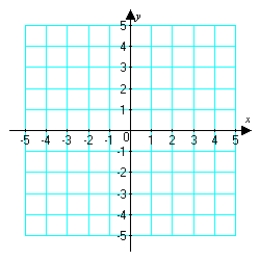
A)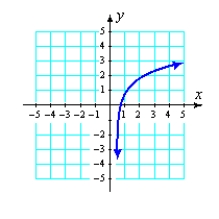
B)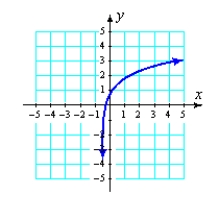
C)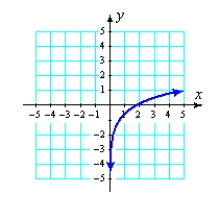
D)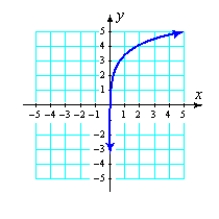


A)

B)

C)

D)


2
Use the properties of logarithms to rewrite the expression as a single term. 
A)
B)
C)
D) ( = 0)
( = 0)

A)

B)

C)

D)
 ( = 0)
( = 0) ( = 0)
( = 0) 3
Evaluate the limit. 
A) 1
B) 0
C)
D) indeterminant

A) 1
B) 0
C)

D) indeterminant
0
4
Evaluate the integral. 
A)
B)
C)
D)

A)

B)

C)

D)


Unlock Deck
Unlock for access to all 66 flashcards in this deck.
Unlock Deck
k this deck
5
Evaluate the limit. 
A) 1
B) 0
C)
D) indeterminant

A) 1
B) 0
C)

D) indeterminant

Unlock Deck
Unlock for access to all 66 flashcards in this deck.
Unlock Deck
k this deck
6
Evaluate the integral. 
A)
B)
C)
D)

A)

B)

C)

D)


Unlock Deck
Unlock for access to all 66 flashcards in this deck.
Unlock Deck
k this deck
7
Evaluate the integral. 
A)
B)
C)
D)

A)

B)

C)

D)


Unlock Deck
Unlock for access to all 66 flashcards in this deck.
Unlock Deck
k this deck
8
The gain g of a signal amplifier (an electronics component) is given by 
 , where x is the input signal in millivolts. Find an x that maximizes the gain. Round to three decimal places.
, where x is the input signal in millivolts. Find an x that maximizes the gain. Round to three decimal places.
A) 2.718
B) 7.389
C) 1.532
D) 1.763

 , where x is the input signal in millivolts. Find an x that maximizes the gain. Round to three decimal places.
, where x is the input signal in millivolts. Find an x that maximizes the gain. Round to three decimal places.A) 2.718
B) 7.389
C) 1.532
D) 1.763

Unlock Deck
Unlock for access to all 66 flashcards in this deck.
Unlock Deck
k this deck
9
Show that  and
and  for all x. Show all work.
for all x. Show all work.  and
and 
 and
and  for all x. Show all work.
for all x. Show all work.  and
and 

Unlock Deck
Unlock for access to all 66 flashcards in this deck.
Unlock Deck
k this deck
10
Find the derivative of  .
.
A)
B)
C)
D)
 .
.A)

B)

C)

D)


Unlock Deck
Unlock for access to all 66 flashcards in this deck.
Unlock Deck
k this deck
11
Use logarithmic differentiation to find the derivative of the given function.  .
.
A)
B)
C)
D)
 .
.A)

B)

C)

D)


Unlock Deck
Unlock for access to all 66 flashcards in this deck.
Unlock Deck
k this deck
12
Use logarithmic differentiation to find the derivative of the given function.  .
.
A)
B)
C)
D)
 .
.A)

B)

C)

D)


Unlock Deck
Unlock for access to all 66 flashcards in this deck.
Unlock Deck
k this deck
13
Evaluate the integral. 
A)
B)
C)
D)

A)

B)

C)

D)


Unlock Deck
Unlock for access to all 66 flashcards in this deck.
Unlock Deck
k this deck
14
Use the properties of logarithms to rewrite the expression as a single term. 
A)
B)
C)
D)

A)

B)

C)

D)


Unlock Deck
Unlock for access to all 66 flashcards in this deck.
Unlock Deck
k this deck
15
Find the derivative of  .
.
A)
B)
C)
D)
 .
.A)

B)

C)

D)


Unlock Deck
Unlock for access to all 66 flashcards in this deck.
Unlock Deck
k this deck
16
Use Simpson's Rule with n = 4 to estimate ln 3. Round your answer to the nearest tenth.
A) 1.1
B) 3.3
C) 1.3
D) 2.2
A) 1.1
B) 3.3
C) 1.3
D) 2.2

Unlock Deck
Unlock for access to all 66 flashcards in this deck.
Unlock Deck
k this deck
17
Express the number as an integral. 
A)
B)
C)
D)

A)

B)

C)

D)


Unlock Deck
Unlock for access to all 66 flashcards in this deck.
Unlock Deck
k this deck
18
Graph the function. [It may be helpful to find the intervals on which the function is increasing and decreasing, concave up and concave down.] ![<strong>Graph the function. [It may be helpful to find the intervals on which the function is increasing and decreasing, concave up and concave down.] </strong> A) B) C) D)](https://storage.examlex.com/TB5869/11eaa88b_915e_7a7d_a696_357c21c9c9ea_TB5869_11.jpg)
![<strong>Graph the function. [It may be helpful to find the intervals on which the function is increasing and decreasing, concave up and concave down.] </strong> A) B) C) D)](https://storage.examlex.com/TB5869/11eaa88b_915e_a18e_a696_0feeda0f47b8_TB5869_11.jpg)
A)![<strong>Graph the function. [It may be helpful to find the intervals on which the function is increasing and decreasing, concave up and concave down.] </strong> A) B) C) D)](https://storage.examlex.com/TB5869/11eaa88b_915e_a18f_a696_4748bdc2e668_TB5869_11.jpg)
B)![<strong>Graph the function. [It may be helpful to find the intervals on which the function is increasing and decreasing, concave up and concave down.] </strong> A) B) C) D)](https://storage.examlex.com/TB5869/11eaa88b_915e_c8a0_a696_0baecf38d85d_TB5869_11.jpg)
C)![<strong>Graph the function. [It may be helpful to find the intervals on which the function is increasing and decreasing, concave up and concave down.] </strong> A) B) C) D)](https://storage.examlex.com/TB5869/11eaa88b_915e_efb1_a696_3d3c7fcf64fc_TB5869_11.jpg)
D)![<strong>Graph the function. [It may be helpful to find the intervals on which the function is increasing and decreasing, concave up and concave down.] </strong> A) B) C) D)](https://storage.examlex.com/TB5869/11eaa88b_915e_efb2_a696_a351abd7aea3_TB5869_11.jpg)
![<strong>Graph the function. [It may be helpful to find the intervals on which the function is increasing and decreasing, concave up and concave down.] </strong> A) B) C) D)](https://storage.examlex.com/TB5869/11eaa88b_915e_7a7d_a696_357c21c9c9ea_TB5869_11.jpg)
![<strong>Graph the function. [It may be helpful to find the intervals on which the function is increasing and decreasing, concave up and concave down.] </strong> A) B) C) D)](https://storage.examlex.com/TB5869/11eaa88b_915e_a18e_a696_0feeda0f47b8_TB5869_11.jpg)
A)
![<strong>Graph the function. [It may be helpful to find the intervals on which the function is increasing and decreasing, concave up and concave down.] </strong> A) B) C) D)](https://storage.examlex.com/TB5869/11eaa88b_915e_a18f_a696_4748bdc2e668_TB5869_11.jpg)
B)
![<strong>Graph the function. [It may be helpful to find the intervals on which the function is increasing and decreasing, concave up and concave down.] </strong> A) B) C) D)](https://storage.examlex.com/TB5869/11eaa88b_915e_c8a0_a696_0baecf38d85d_TB5869_11.jpg)
C)
![<strong>Graph the function. [It may be helpful to find the intervals on which the function is increasing and decreasing, concave up and concave down.] </strong> A) B) C) D)](https://storage.examlex.com/TB5869/11eaa88b_915e_efb1_a696_3d3c7fcf64fc_TB5869_11.jpg)
D)
![<strong>Graph the function. [It may be helpful to find the intervals on which the function is increasing and decreasing, concave up and concave down.] </strong> A) B) C) D)](https://storage.examlex.com/TB5869/11eaa88b_915e_efb2_a696_a351abd7aea3_TB5869_11.jpg)

Unlock Deck
Unlock for access to all 66 flashcards in this deck.
Unlock Deck
k this deck
19
Use the properties of logarithms to rewrite the expression as a single term. 
A)
B)
C)
D)

A)

B)

C)

D)


Unlock Deck
Unlock for access to all 66 flashcards in this deck.
Unlock Deck
k this deck
20
Use the properties of logarithms to rewrite the expression as a single term. 
A)
B)
C)
D)

A)

B)

C)

D)


Unlock Deck
Unlock for access to all 66 flashcards in this deck.
Unlock Deck
k this deck
21
Find all extrema and inflection points. 
A) extrema at inflection points at
inflection points at 
B) no extrema inflection point at
C) extremum at inflection points at
inflection points at 
D) extremum at inflection points at
inflection points at 

A) extrema at
 inflection points at
inflection points at 
B) no extrema inflection point at

C) extremum at
 inflection points at
inflection points at 
D) extremum at
 inflection points at
inflection points at 

Unlock Deck
Unlock for access to all 66 flashcards in this deck.
Unlock Deck
k this deck
22
Find the derivative of  .
.
A)
B)
C)
D)
 .
.A)

B)

C)

D)


Unlock Deck
Unlock for access to all 66 flashcards in this deck.
Unlock Deck
k this deck
23
Decide whether the function described has an inverse. The weight of a package dependent upon the amount of postage bought.
A) yes
B) no
A) yes
B) no

Unlock Deck
Unlock for access to all 66 flashcards in this deck.
Unlock Deck
k this deck
24
Decide whether the function described has an inverse. The length of the shadow of a flagpole from noon to dusk.
A) yes
B) no
A) yes
B) no

Unlock Deck
Unlock for access to all 66 flashcards in this deck.
Unlock Deck
k this deck
25
Evaluate the integral. 
A)
B)
C)
D)

A)

B)

C)

D)


Unlock Deck
Unlock for access to all 66 flashcards in this deck.
Unlock Deck
k this deck
26
Assume that the function has an inverse, and, without solving for the inverse, find the indicated value.  ;
; 
A)
B)
C)
D)
 ;
; 
A)

B)

C)

D)


Unlock Deck
Unlock for access to all 66 flashcards in this deck.
Unlock Deck
k this deck
27
Evaluate the integral exactly. 
A)
B)
C)
D)

A)

B)

C)

D)


Unlock Deck
Unlock for access to all 66 flashcards in this deck.
Unlock Deck
k this deck
28
Use the given graph to sketch the inverse function. 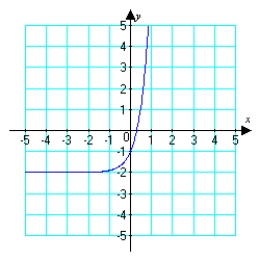
A)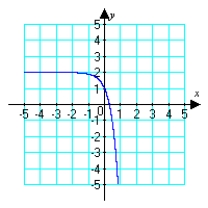
B)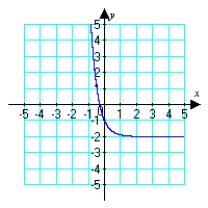
C)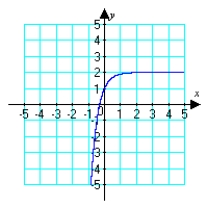
D)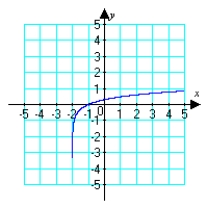

A)

B)

C)

D)


Unlock Deck
Unlock for access to all 66 flashcards in this deck.
Unlock Deck
k this deck
29
Find all extrema and inflection points. 
A) extremum at inflection points at
inflection points at 
B) extrema at and
and  inflection points at
inflection points at 
C) extremum at no inflection points
no inflection points
D) extremum at no inflection points
no inflection points

A) extremum at
 inflection points at
inflection points at 
B) extrema at
 and
and  inflection points at
inflection points at 
C) extremum at
 no inflection points
no inflection pointsD) extremum at
 no inflection points
no inflection points
Unlock Deck
Unlock for access to all 66 flashcards in this deck.
Unlock Deck
k this deck
30
Use the given graph to sketch the inverse function. 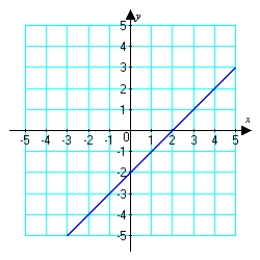
A)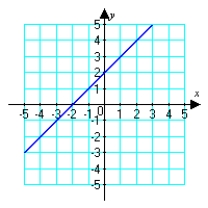
B)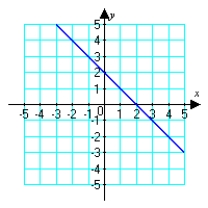
C)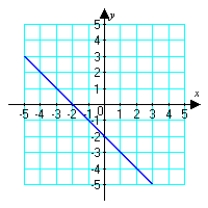
D)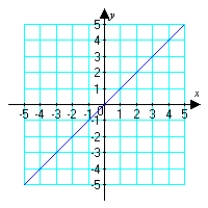

A)

B)

C)

D)


Unlock Deck
Unlock for access to all 66 flashcards in this deck.
Unlock Deck
k this deck
31
Find the derivative of  .
.
A)
B)
C)
D)
 .
.A)

B)

C)

D)


Unlock Deck
Unlock for access to all 66 flashcards in this deck.
Unlock Deck
k this deck
32
Evaluate the integral. 
A)
B)
C)
D)

A)

B)

C)

D)


Unlock Deck
Unlock for access to all 66 flashcards in this deck.
Unlock Deck
k this deck
33
Use a graph to determine if the function is one-to-one. If it is, find the inverse and graph both the function and its inverse. 
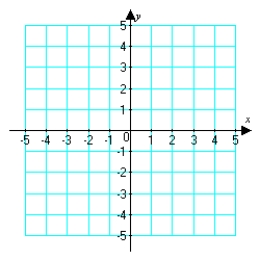
A) one-to-one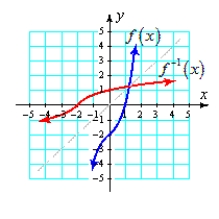
B) not one-to-one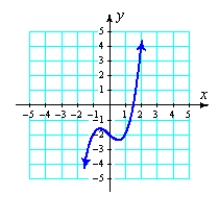
C) not one-to-one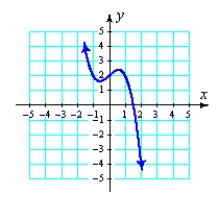
D) one-to-one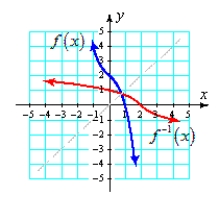


A) one-to-one

B) not one-to-one

C) not one-to-one

D) one-to-one


Unlock Deck
Unlock for access to all 66 flashcards in this deck.
Unlock Deck
k this deck
34
Determine if the function is one-to-one. If it is, then find its inverse and graph both the function and its inverse. 
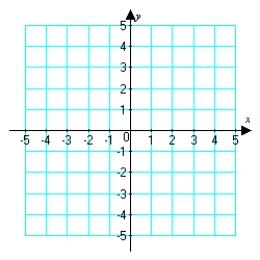



Unlock Deck
Unlock for access to all 66 flashcards in this deck.
Unlock Deck
k this deck
35
Show that  and
and  for all x. Show all work.
for all x. Show all work.  and
and  ;
; 
 and
and  for all x. Show all work.
for all x. Show all work.  and
and  ;
; 

Unlock Deck
Unlock for access to all 66 flashcards in this deck.
Unlock Deck
k this deck
36
Show that  and
and  are inverse functions. Show all of your work.
are inverse functions. Show all of your work.
 and
and  are inverse functions. Show all of your work.
are inverse functions. Show all of your work.
Unlock Deck
Unlock for access to all 66 flashcards in this deck.
Unlock Deck
k this deck
37
Determine if the function is one-to-one. If it is, then find its inverse and graph both the function and its inverse. 
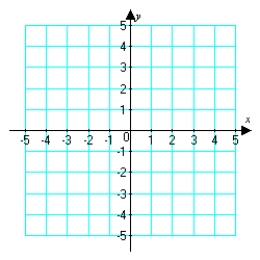



Unlock Deck
Unlock for access to all 66 flashcards in this deck.
Unlock Deck
k this deck
38
Find an equation of the tangent line for  at x = 2.
at x = 2.
A)
B)
C)
D)
 at x = 2.
at x = 2.A)

B)

C)

D)


Unlock Deck
Unlock for access to all 66 flashcards in this deck.
Unlock Deck
k this deck
39
Sketch the graph of 
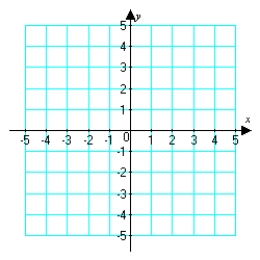
A)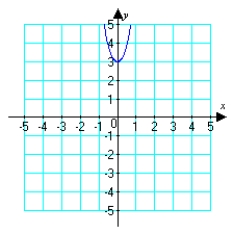
B)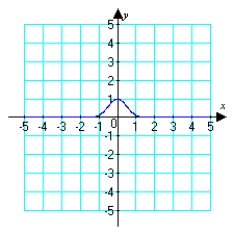
C)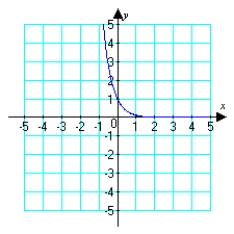
D)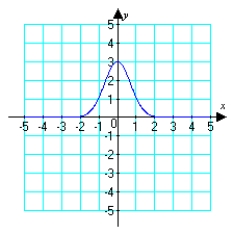


A)

B)

C)

D)


Unlock Deck
Unlock for access to all 66 flashcards in this deck.
Unlock Deck
k this deck
40
Assume that the function has an inverse, and, without solving for the inverse, find the indicated value.  ;
; 
A)
B)
C)
D)
 ;
; 
A)

B)

C)

D)


Unlock Deck
Unlock for access to all 66 flashcards in this deck.
Unlock Deck
k this deck
41
An investment compounded continuously will be worth  , where A is the investment in dollars, r is the annual interest rate, and t is the time in years. APY can be defined as
, where A is the investment in dollars, r is the annual interest rate, and t is the time in years. APY can be defined as  , the relative increase of worth in one year. Find the APY for an interest rate of 7%. Express the APY as a percent rounded to 2 decimal places.
, the relative increase of worth in one year. Find the APY for an interest rate of 7%. Express the APY as a percent rounded to 2 decimal places.
A)
B)
C)
D)
 , where A is the investment in dollars, r is the annual interest rate, and t is the time in years. APY can be defined as
, where A is the investment in dollars, r is the annual interest rate, and t is the time in years. APY can be defined as  , the relative increase of worth in one year. Find the APY for an interest rate of 7%. Express the APY as a percent rounded to 2 decimal places.
, the relative increase of worth in one year. Find the APY for an interest rate of 7%. Express the APY as a percent rounded to 2 decimal places.A)

B)

C)

D)


Unlock Deck
Unlock for access to all 66 flashcards in this deck.
Unlock Deck
k this deck
42
A bacterial population starts at 200 and quintuples every day. Calculate the percent rate of change rounded to 2 decimal places.
A) 179.18 %
B) 160.94 %
C) 1.61 %
D) 110.94 %
A) 179.18 %
B) 160.94 %
C) 1.61 %
D) 110.94 %

Unlock Deck
Unlock for access to all 66 flashcards in this deck.
Unlock Deck
k this deck
43
Evaluate the integral. 
A)
B)
C)
D)

A)

B)

C)

D)


Unlock Deck
Unlock for access to all 66 flashcards in this deck.
Unlock Deck
k this deck
44
Evaluate the inverse functions by sketching a unit circle and locating the correct angle on the circle. (a)  (b)
(b)  (c)
(c) 
A) (a) (b)
(b) 
(c)
B) (a) (b)
(b) 
(c)
C) (a) 0 (b)
(c)
D) (a) 0 (b)
(c)
 (b)
(b)  (c)
(c) 
A) (a)
 (b)
(b) 
(c)

B) (a)
 (b)
(b) 
(c)

C) (a) 0 (b)

(c)

D) (a) 0 (b)

(c)


Unlock Deck
Unlock for access to all 66 flashcards in this deck.
Unlock Deck
k this deck
45
Sketch a graph of the function. 
A)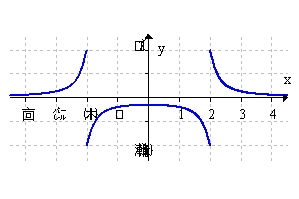
B)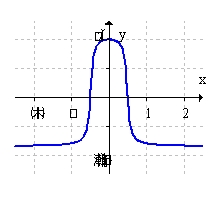
C)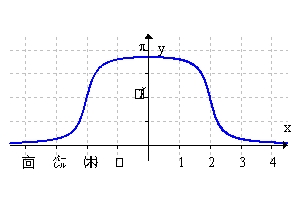
D)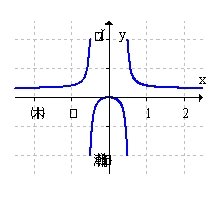

A)

B)

C)

D)


Unlock Deck
Unlock for access to all 66 flashcards in this deck.
Unlock Deck
k this deck
46
Use a triangle to simplify the expression.  .
.
A)
B)
C)
D)
 .
.A)

B)

C)

D)


Unlock Deck
Unlock for access to all 66 flashcards in this deck.
Unlock Deck
k this deck
47
A picture hanging in an art gallery has a frame 15 inches high and the bottom of the frame is 6 feet above the floor. A person whose eye is 6 ft above the floor stands x feet from the wall. Let A be the angle formed by the ray from the person's eye to the bottom of the frame and the ray from the person's eye to the top of the frame. Write A as a function of x and graph y = A(x).
A)
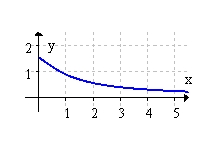
B)
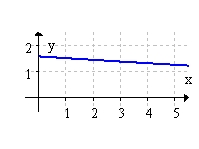
C)
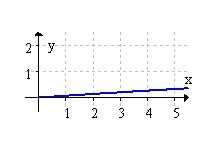
D)
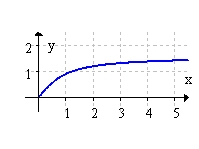
A)


B)


C)


D)



Unlock Deck
Unlock for access to all 66 flashcards in this deck.
Unlock Deck
k this deck
48
Sketch the graph of the function. 
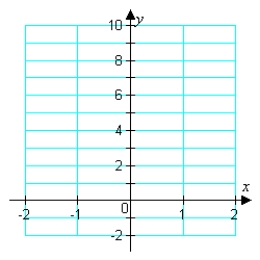



Unlock Deck
Unlock for access to all 66 flashcards in this deck.
Unlock Deck
k this deck
49
Find the derivative of  .
.
A)
B)
C)
D)
 .
.A)

B)

C)

D)


Unlock Deck
Unlock for access to all 66 flashcards in this deck.
Unlock Deck
k this deck
50
Evaluate the integral. 
A)
B)
C)
D)

A)

B)

C)

D)


Unlock Deck
Unlock for access to all 66 flashcards in this deck.
Unlock Deck
k this deck
51
Evaluate the integral. 
A)
B)
C)
D)

A)

B)

C)

D)


Unlock Deck
Unlock for access to all 66 flashcards in this deck.
Unlock Deck
k this deck
52
Use a triangle to simplify the expression. 
A)
B)
C)
D)

A)

B)

C)

D)


Unlock Deck
Unlock for access to all 66 flashcards in this deck.
Unlock Deck
k this deck
53
A flywheel of radius r is driven by a reciprocating shaft S and a linking arm L (see figure below). 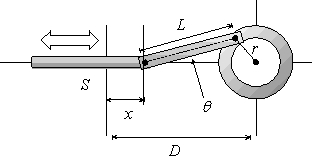 If x represents the displacement of the shaft from its leftmost position, then the angle
If x represents the displacement of the shaft from its leftmost position, then the angle  between the linking arm and the centerline of the shaft is
between the linking arm and the centerline of the shaft is  . Find the maximum value of
. Find the maximum value of  .
.
A)
B)
C)
D)
 If x represents the displacement of the shaft from its leftmost position, then the angle
If x represents the displacement of the shaft from its leftmost position, then the angle  between the linking arm and the centerline of the shaft is
between the linking arm and the centerline of the shaft is  . Find the maximum value of
. Find the maximum value of  .
.A)

B)

C)

D)


Unlock Deck
Unlock for access to all 66 flashcards in this deck.
Unlock Deck
k this deck
54
Sketch the graph of the function. 
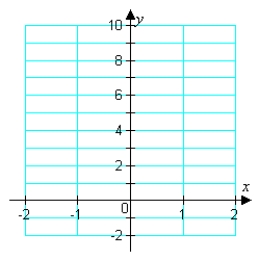



Unlock Deck
Unlock for access to all 66 flashcards in this deck.
Unlock Deck
k this deck
55
Find all solutions. 
A) or
or 
B) or
or 
C)
D) or
or 

A)
 or
or 
B)
 or
or 
C)

D)
 or
or 

Unlock Deck
Unlock for access to all 66 flashcards in this deck.
Unlock Deck
k this deck
56
Find all solutions. 
A)
B)
C)
D)

A)

B)

C)

D)


Unlock Deck
Unlock for access to all 66 flashcards in this deck.
Unlock Deck
k this deck
57
Graph the function. 
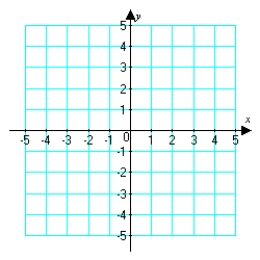
A)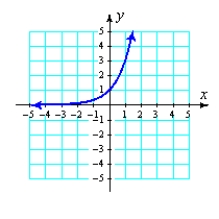
B)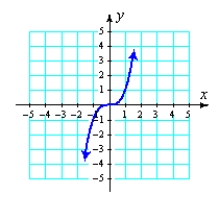
C)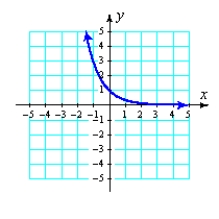
D)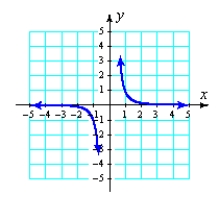


A)

B)

C)

D)


Unlock Deck
Unlock for access to all 66 flashcards in this deck.
Unlock Deck
k this deck
58
The population of trout in a certain overstocked lake is expected to follow the model  ,
,
where p is the population in thousands and t is the time in months. Show that and use this information to determine that the population model never reaches zero.
and use this information to determine that the population model never reaches zero.
 ,
,where p is the population in thousands and t is the time in months. Show that
 and use this information to determine that the population model never reaches zero.
and use this information to determine that the population model never reaches zero.
Unlock Deck
Unlock for access to all 66 flashcards in this deck.
Unlock Deck
k this deck
59
Evaluate the integral. 
A)
B)
C)
D)

A)

B)

C)

D)


Unlock Deck
Unlock for access to all 66 flashcards in this deck.
Unlock Deck
k this deck
60
Find the derivative of the given function. 
A)
B)
C)
D)

A)

B)

C)

D)


Unlock Deck
Unlock for access to all 66 flashcards in this deck.
Unlock Deck
k this deck
61
Find the derivative of the function. 
A)
B)
C)
D)

A)

B)

C)

D)


Unlock Deck
Unlock for access to all 66 flashcards in this deck.
Unlock Deck
k this deck
62
Evaluate the integral. 
A) esinh 4
B) esinh 4 - 1
C) -esinh 4 - 1
D) -esinh 4

A) esinh 4
B) esinh 4 - 1
C) -esinh 4 - 1
D) -esinh 4

Unlock Deck
Unlock for access to all 66 flashcards in this deck.
Unlock Deck
k this deck
63
Find the derivative of the function. 
A)
B)
C)
D)

A)

B)

C)

D)


Unlock Deck
Unlock for access to all 66 flashcards in this deck.
Unlock Deck
k this deck
64
Suppose that a hanging cable has the shape  for
for  . Find the length of the cable.
. Find the length of the cable.
A)
B)
C)
D)
 for
for  . Find the length of the cable.
. Find the length of the cable.A)

B)

C)

D)


Unlock Deck
Unlock for access to all 66 flashcards in this deck.
Unlock Deck
k this deck
65
Evaluate the integral. 
A)
B)
C)
D)

A)

B)

C)

D)


Unlock Deck
Unlock for access to all 66 flashcards in this deck.
Unlock Deck
k this deck
66
Evaluate the integral. 
A)
B)
C)
D)

A)

B)

C)

D)


Unlock Deck
Unlock for access to all 66 flashcards in this deck.
Unlock Deck
k this deck


